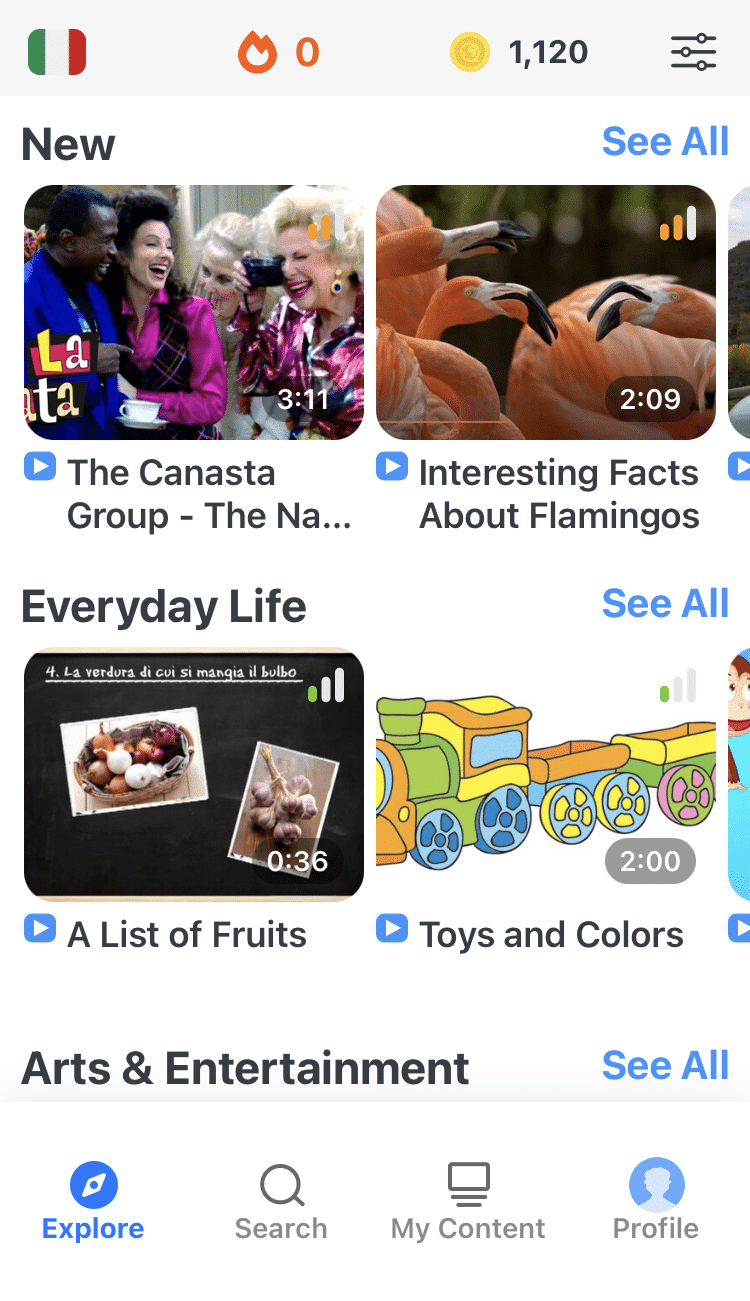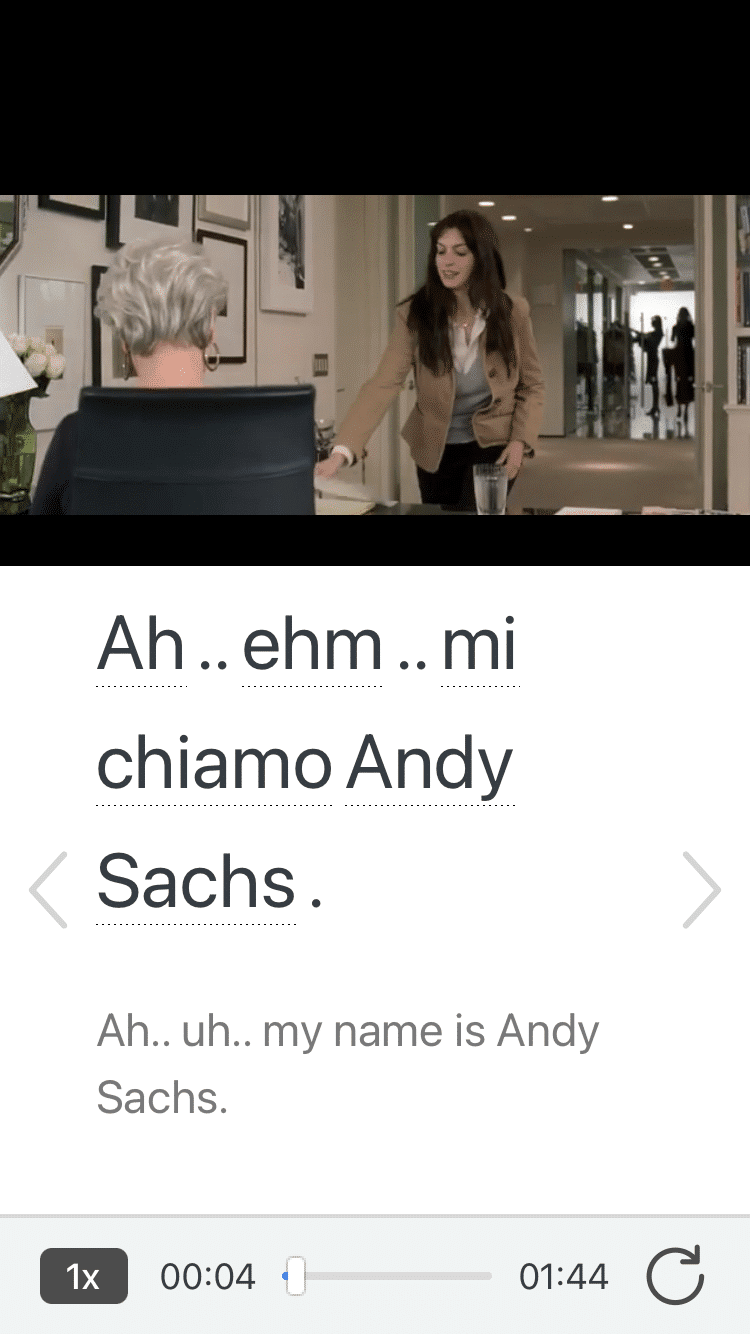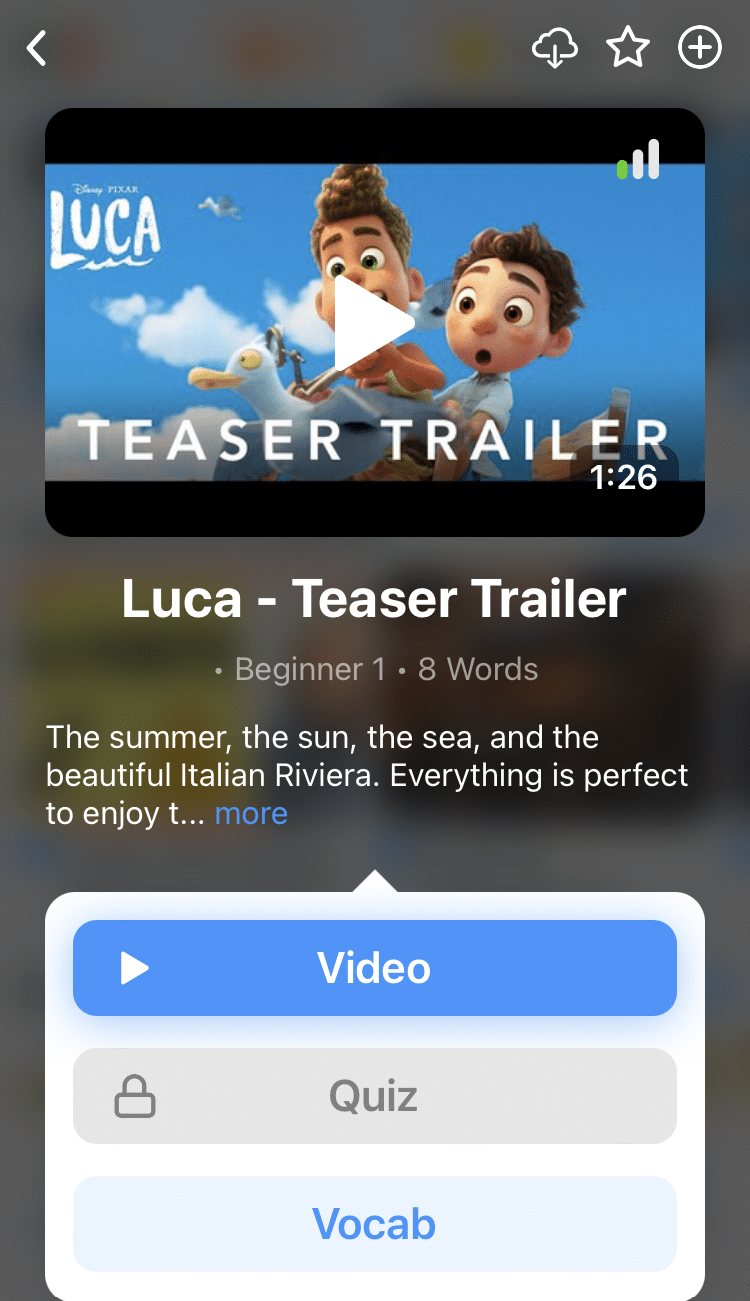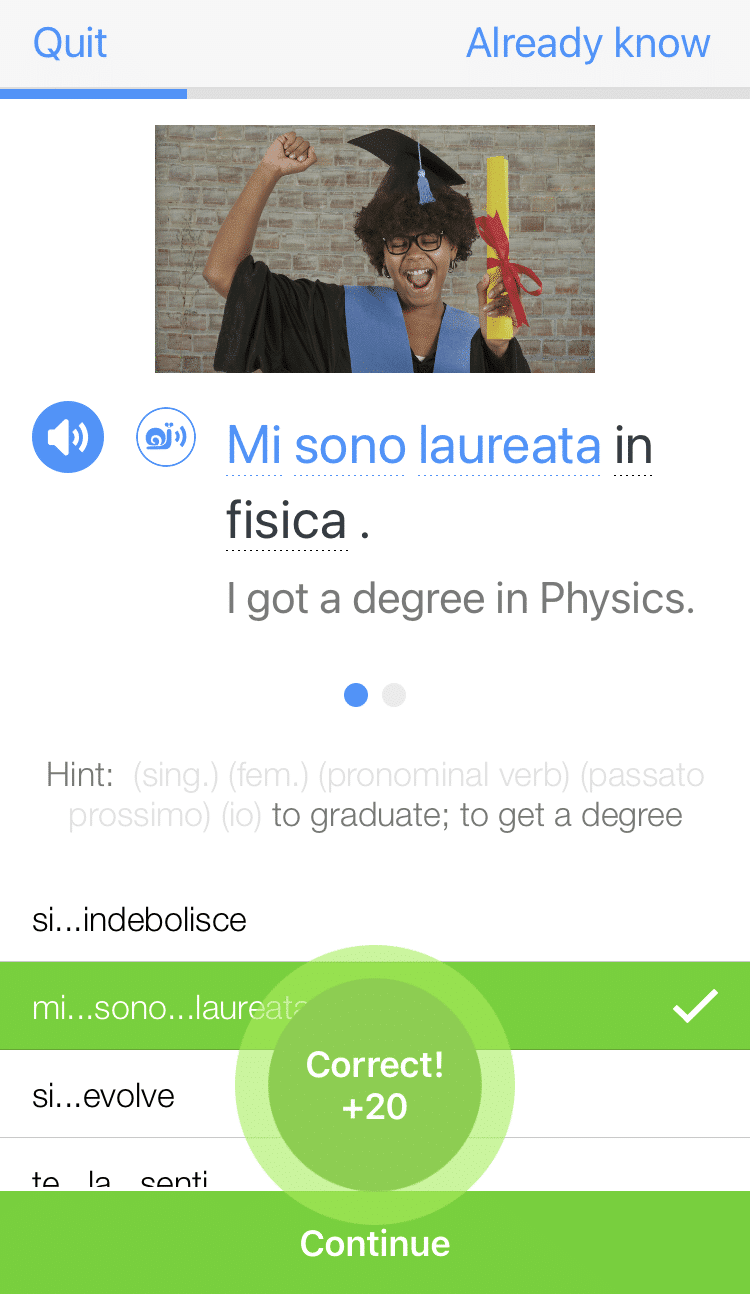
7 Ways to Say Good Night in Italian
Imagine you’ve been having a great Italian conversation with your friends all day, yet when the night falls and it’s time to go… you’re at a loss for words!
What’s the appropriate thing to say to your new Italian friend as you part ways for the evening?
How do you tell your host family that you’re heading to bed?
This is why you must master your nighttime vocab so you’re prepared to converse with Italian speakers during any time of the day.
Here’s everything you need to know about saying good night like a true Italian.
Contents
- How to Say “Good Night” in Italian
- Formal vs. Informal “Good Night”
- Other Helpful Italian Sleep Vocabulary
- And One More Thing...
Download: This blog post is available as a convenient and portable PDF that you can take anywhere. Click here to get a copy. (Download)
How to Say “Good Night” in Italian
1. Buona notte! / Buonanotte! — Good night
Buona notte (good night) is considered the standard way to say good night in Italian.
It’s appropriate to use in both formal and informal settings, making it a versatile phrase to know in almost any type of situation.
Just like in English, buona notte is used when the speaker is going to bed or seeing someone for the last time that day.
Io vado a letto, buona notte! (I’m going to bed, good night!)
You might be surprised to learn that “evening” and “night” don’t necessarily mean the same thing in Italy as they do in your home country, so it’s crucial to know the appropriate timing for each phrase.
Keep these tips in mind before striking up a conversation with an Italian speaker during the evening or nighttime:
- You won’t really hear buona notte until later at night. A good rule of thumb is to use buona sera from 4 P.M to 10 P.M and buona notte after that.
- Buona notte is exclusively used when parting ways with someone. It’s safe to use these when parting ways with someone for the night, but don’t use them as a greeting.
2. ‘Notte! — Night
This is simply the shortened version of buona notte and is the same as when we say “night!”
It’s quick and sweet and also tends to be less formal than using the full farewell.
You’d probably only use this with friends and family.
‘Notte! Sogni d’oro. (Night! Sweet dreams.)
3. Buona serata! — Have a good evening
Buona serata directly translates to “have a good evening.”
Italian speakers typically use this phrase when they’re parting ways with someone for the last time that day, much like in English.
The key difference between buona notte and buona serata is that the former is used during traditional bedtime hours, while the latter tends to be spoken earlier in the evening.
Grazie per l’aiuto, buona serata. (Thank you for your help, have a good evening.)
4. Sogni d’oro! — Sweet dreams
If you’re looking to add an extra garnish to your good night wishes, you can use sogni d’oro.
This phrase, which is the Italian equivalent of “sweet dreams,” literally translates to “golden dreams.”
It’s a nice way to let a loved one know that you hope they sleep pleasantly. However, keep in mind that sogni d’oro is typically restricted to informal settings.
Sogni d’oro amore mio. (Sweet dreams my love.)
5. Dorma bene! / Dormi bene! — Sleep well
Depending on who you’re addressing, you can use dorma bene or dormi bene when someone is heading to sleep. This phrase translates to “sleep well.”
In an informal setting, such as a conversation with a friend or family member, use the tu form (dormi bene).
In a more formal situation, the appropriate form would be the Lei form (dorma bene).
Dormi bene, dobbiamo partire presto. (Sleep well, we have to leave early.)
6. Riposati! — Have a good rest
This cute little term is used to tell someone to have a good rest. This is similar to the last term, but just a different way of saying it.
Riposati is rather informal, but you can also say buon riposo to sound more formal.
Vai a letto? Buon riposo! (You’re going to bed? Have a good rest!)
7. Ci vediamo domani! — See you tomorrow
This means “see you tomorrow.”
While it can also be used in other contexts, you can say this to someone when you’re going to bed but you know you’ll see them the next day.
Buona notte, ci vediamo domani. (Good night, I’ll see you tomorrow.)
And there you have it—different ways to say good night in Italian! You’ll hear them all the time, and you’ll come to realize that they’re a cornerstone of Italian polite conversation.
Luckily for you, that means there are tons of ways to practice these words “in the wild.”
By immersing yourself in Italian, you’ll start to get the hang of these words and phrases until they become second nature.
A great way to do this is to listen to Italian podcasts, radio shows or news clips, where you’re likely to hear hosts say “good evening” or “good night” when they sign on or off.
You can also use language learning programs to learn “good night” and other greetings/farewells in Italian.
FluentU takes authentic videos—like music videos, movie trailers, news and inspiring talks—and turns them into personalized language learning lessons.
You can try FluentU for free for 2 weeks. Check out the website or download the iOS app or Android app.
P.S. Click here to take advantage of our current sale! (Expires at the end of this month.)
Formal vs. Informal “Good Night”
A phrase like buona notte doesn’t include any pronouns, but you’ll still want to change the phrase slightly depending on the formality of the situation and the number of people:
- For an informal situation, such as speaking to a group of friends, you can use the casual phrase Buona notte, amici miei. (Good night, my friends.)
- When saying good night to a superior or someone in a formal setting, you can add a more dignified tone by saying Buona notte, signore/signora. (Good night, Sir/Ma’am.)
- In most situations where you’re addressing a group of two or more people, a safe bet is to use the phrase Buona notte a tutti. (Good night, everyone.)
Knowing the difference between formal and informal phrasing and applying it to the relevant situation will allow you to converse more effectively when saying good night in Italian.
Other Helpful Italian Sleep Vocabulary
To truly impress your Italian friends with your vast knowledge of nighttime vocab, you’ll also need to be familiar with several key bedtime words and phrases.
These key nouns and verbs will help enrich your understanding of saying good night in Italian:
- Dormire — to sleep
- Addormentarsi — to fall asleep
- Sognare — to dream
- Svegliarsi — to wake up
- Il letto — the bed
- Il lenzuolo — the bed sheet
- Il cuscino — the pillow
- Il sogno — the dream
Whether you’re saying goodbye to a group of friends at the end of a dinner party or letting your roommate know that you’re heading to bed, these useful additions to your Italian vocabulary are just what you need to expand your understanding of the language.
Good luck, and sweet dreams!
Download: This blog post is available as a convenient and portable PDF that you can take anywhere. Click here to get a copy. (Download)
And One More Thing...
If you're as busy as most of us, you don't always have time for lengthy language lessons. The solution? FluentU!
Learn Italian with funny commericals, documentary excerpts and web series, as you can see here:

FluentU helps you get comfortable with everyday Italian by combining all the benefits of complete immersion and native-level conversations with interactive subtitles. Tap on any word to instantly see an image, in-context definition, example sentences and other videos in which the word is used.

Access a complete interactive transcript of every video under the Dialogue tab, and review words and phrases with convenient audio clips under Vocab.

Once you've watched a video, you can use FluentU's quizzes to actively practice all the vocabulary in that video. Swipe left or right to see more examples of the word you’re on.

FluentU will even keep track of all the Italian words you’re learning, and give you extra practice with difficult words. Plus, it'll tell you exactly when it's time for review. Now that's a 100% personalized experience!
The best part? You can try FluentU for free with a trial.
Start using the FluentU website on your computer or tablet or, better yet, download the FluentU app from the iTunes or Google Play store. Click here to take advantage of our current sale! (Expires at the end of this month.)



